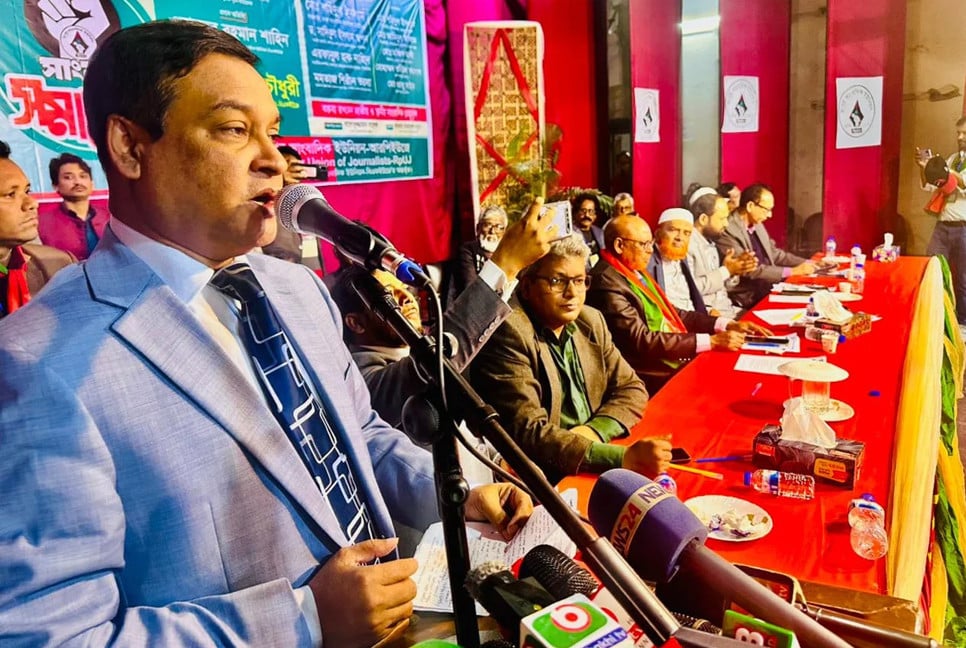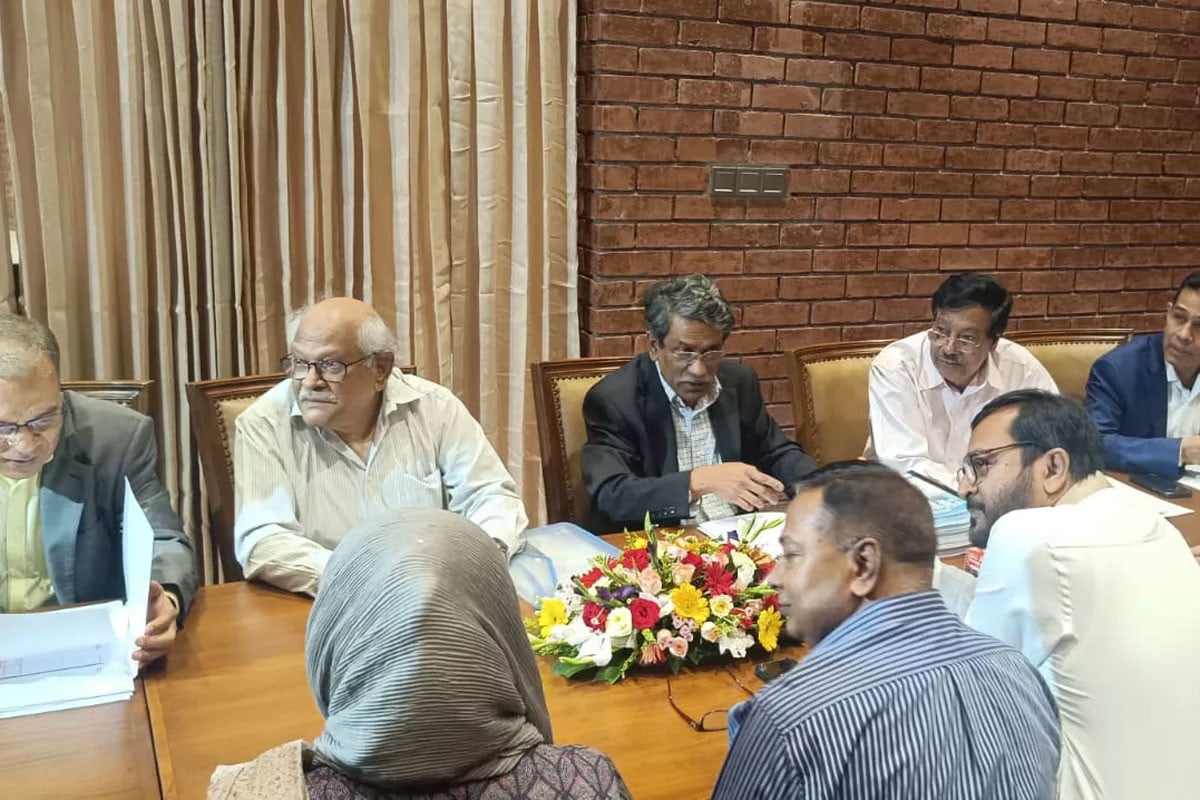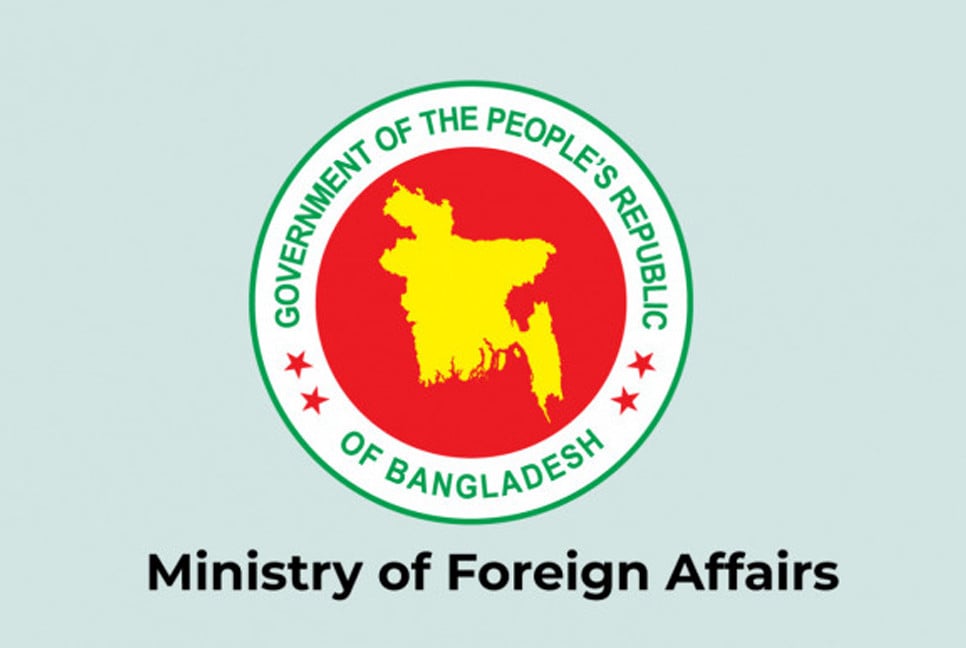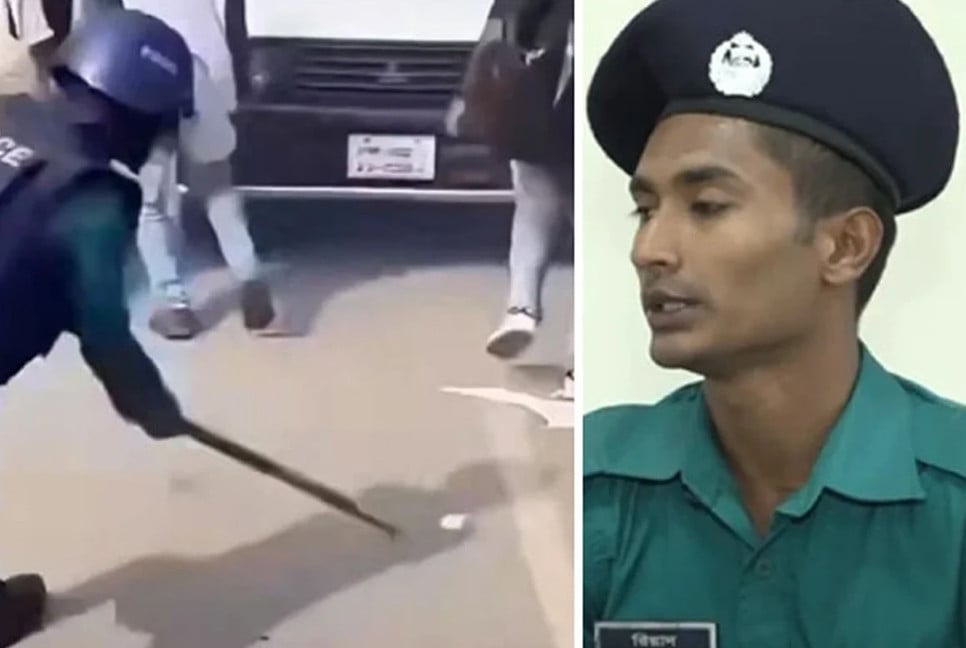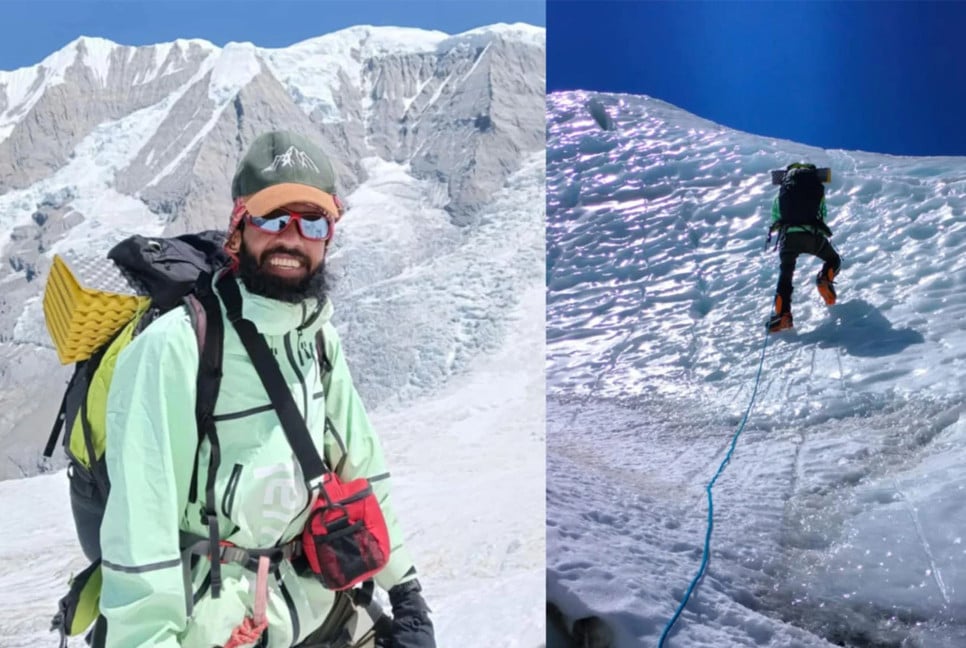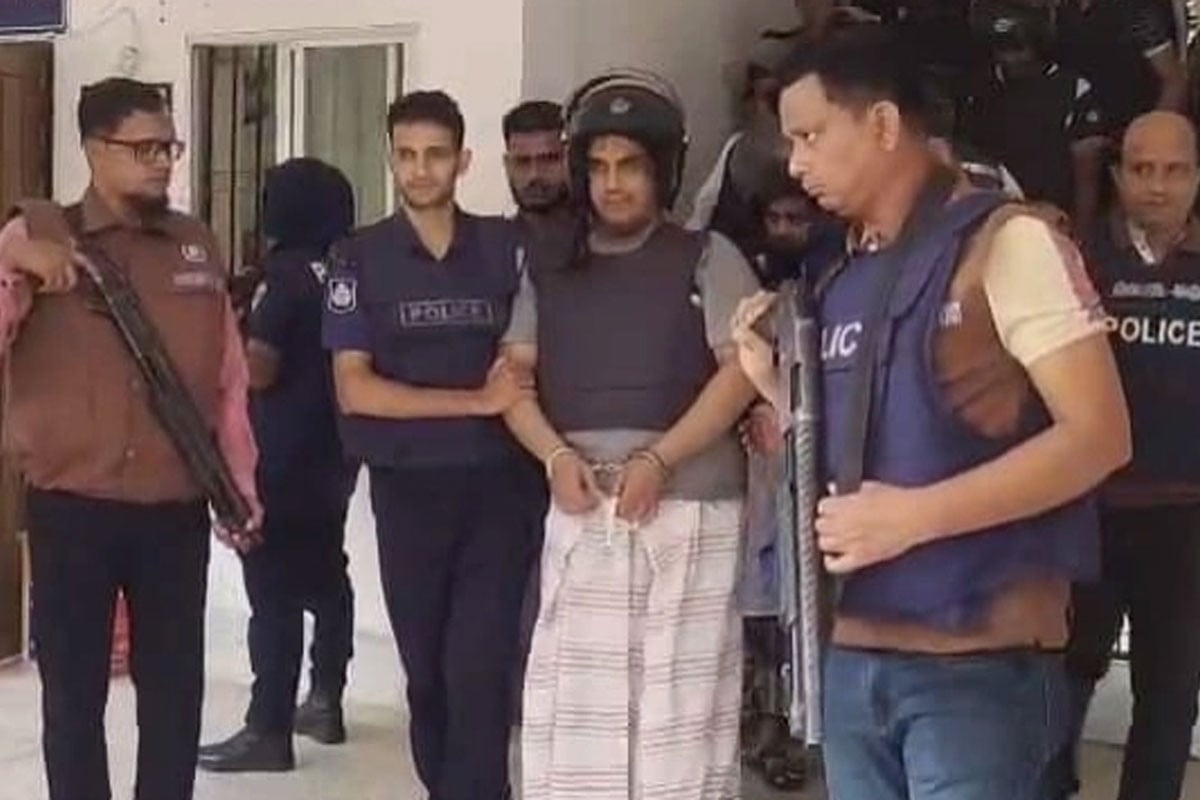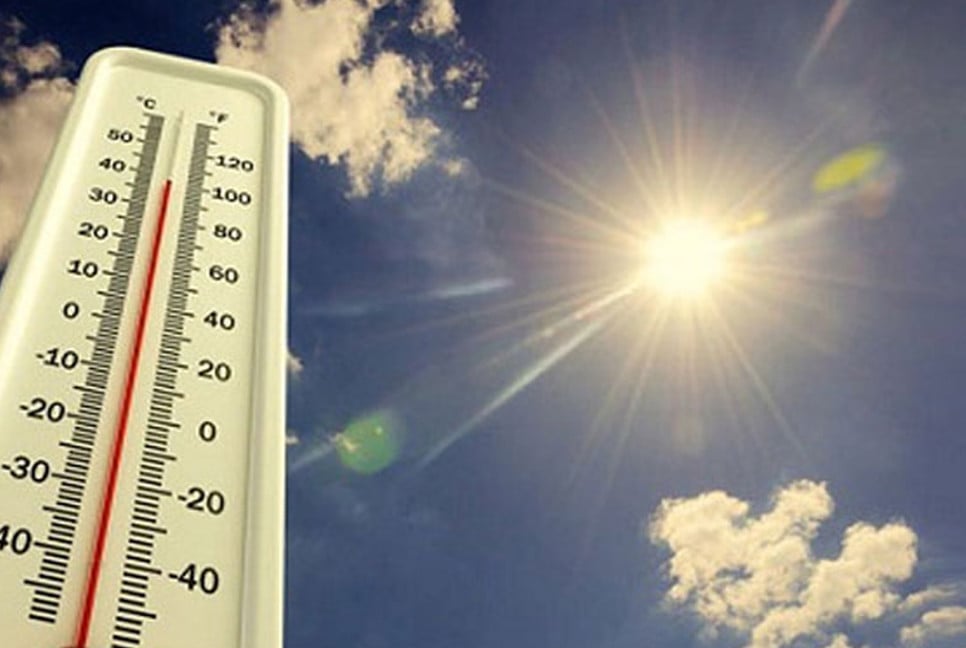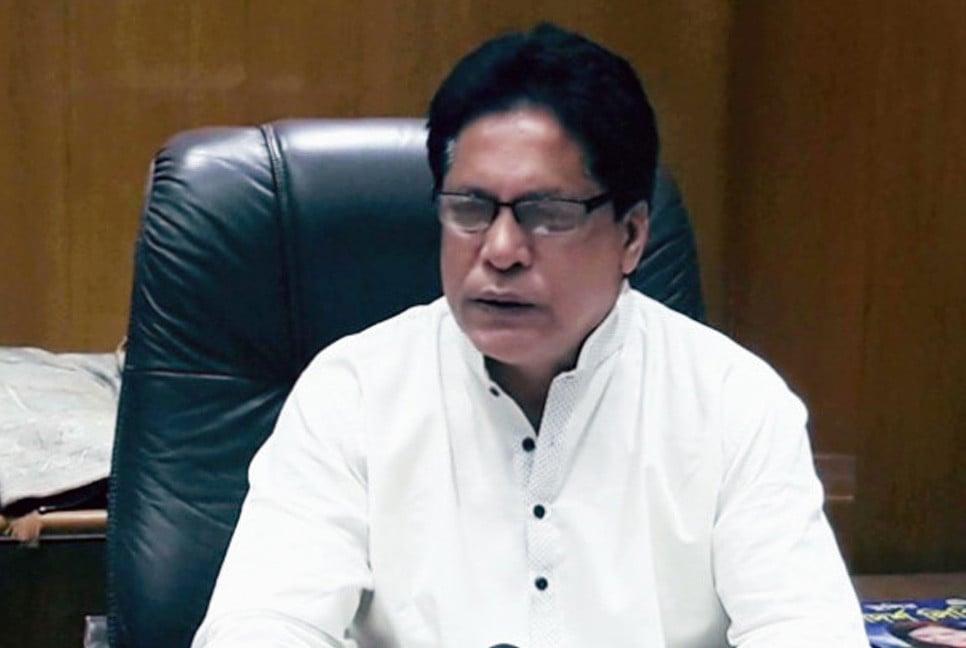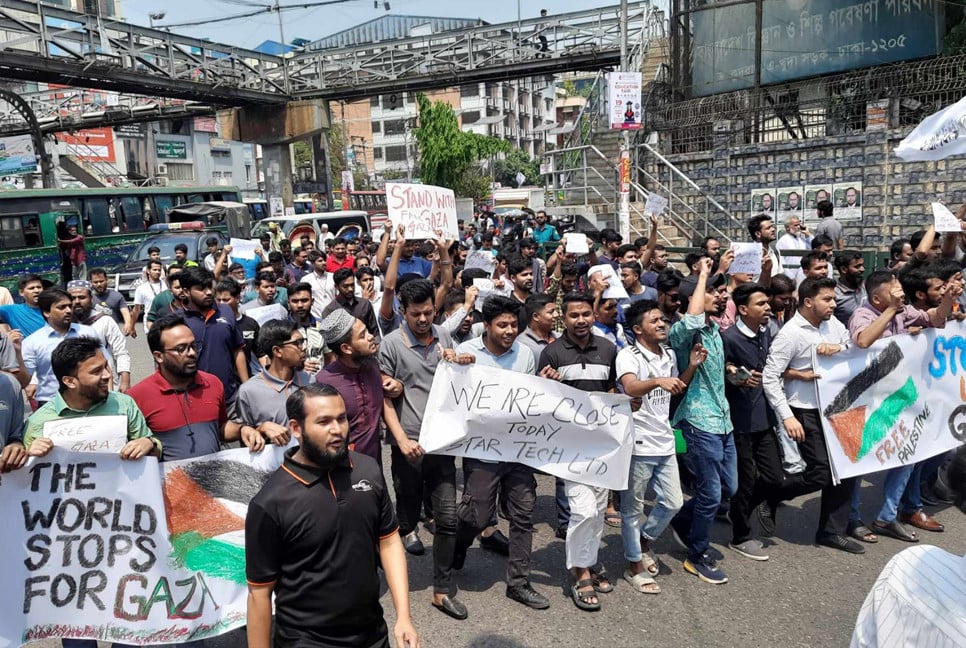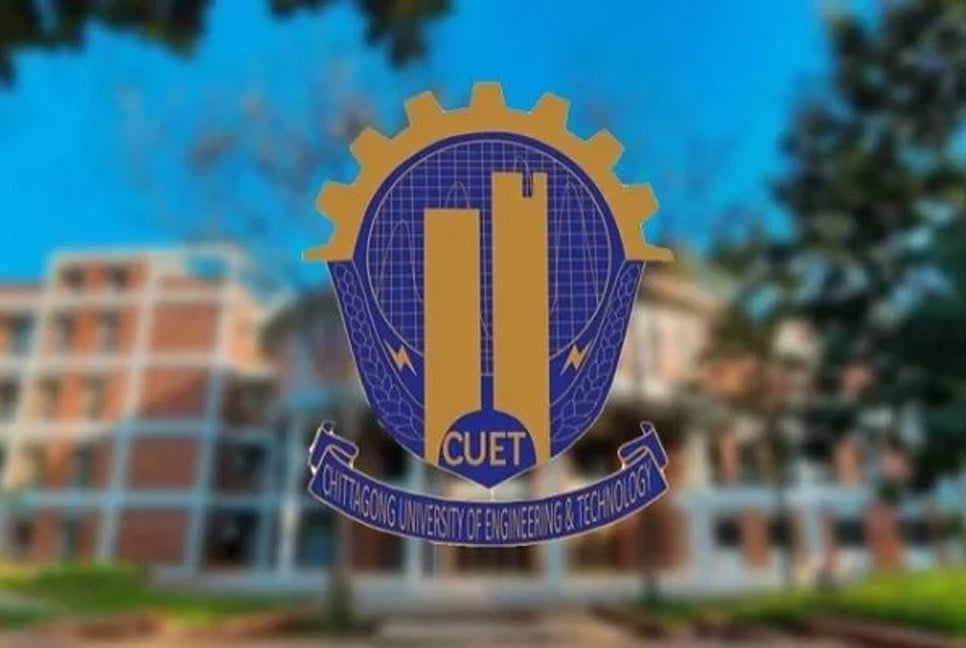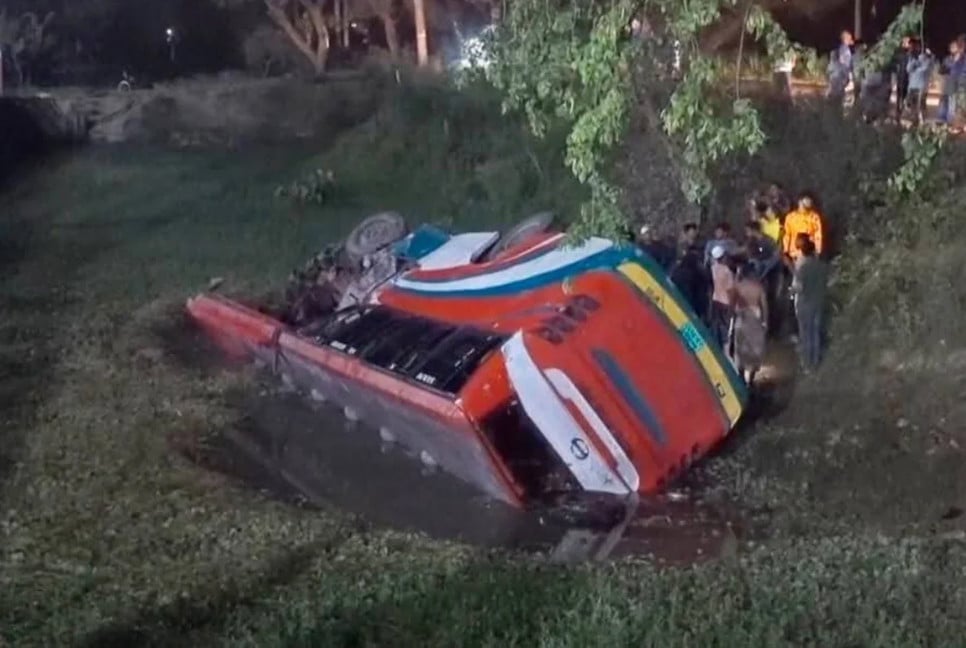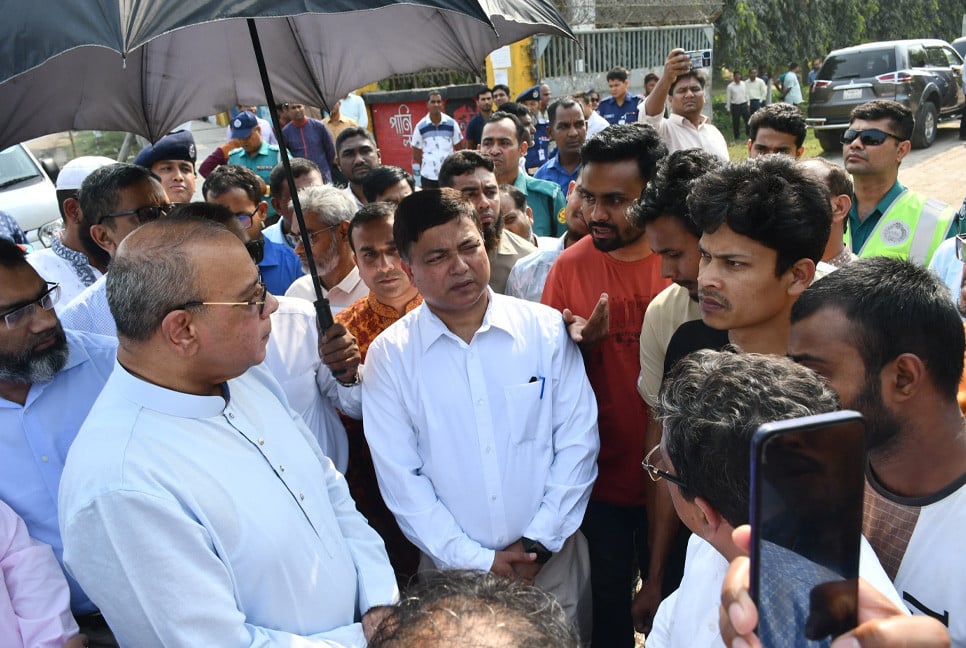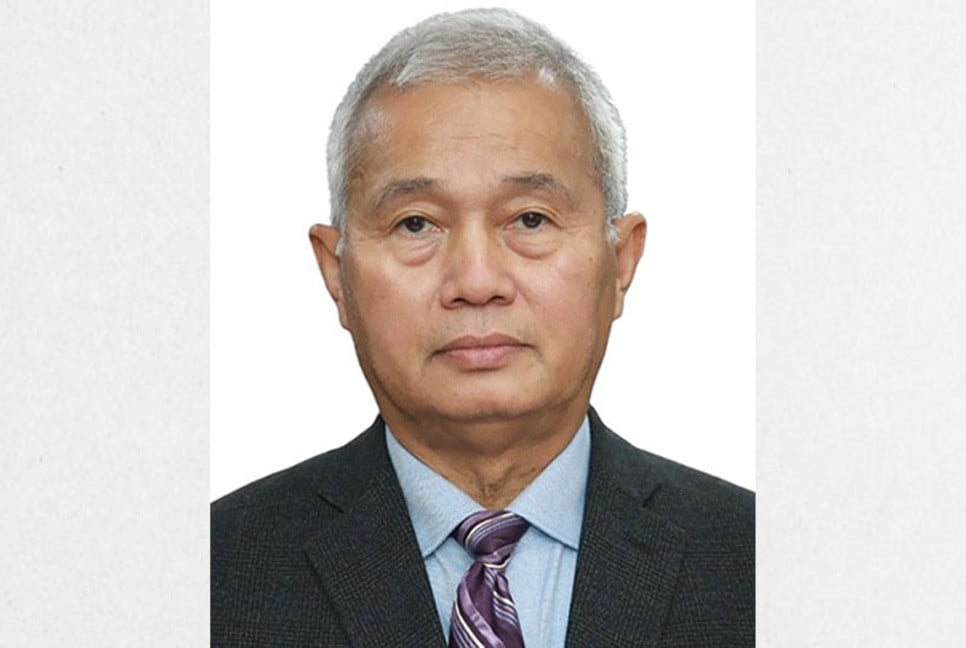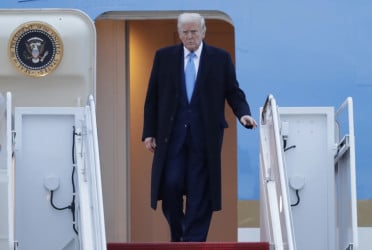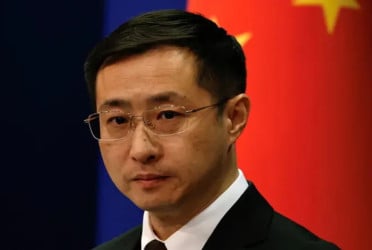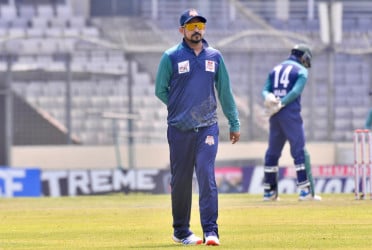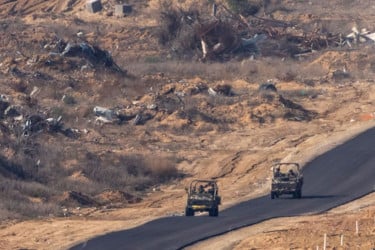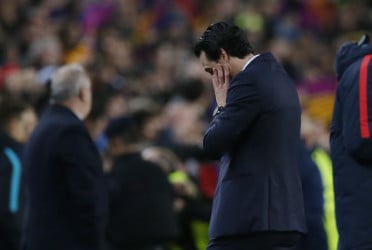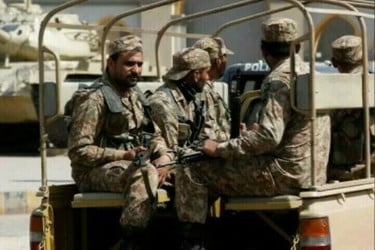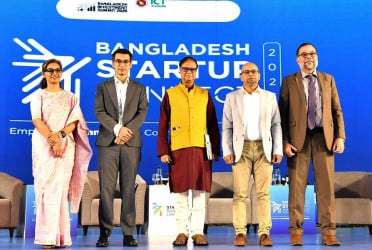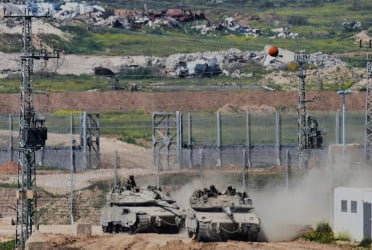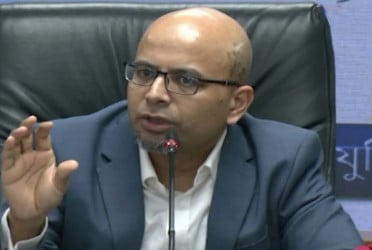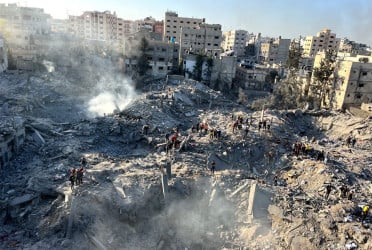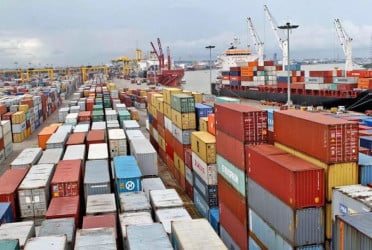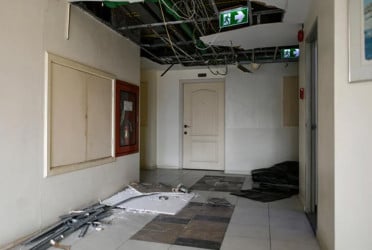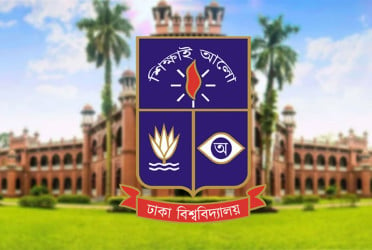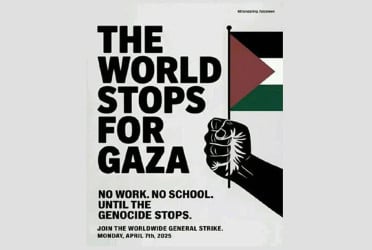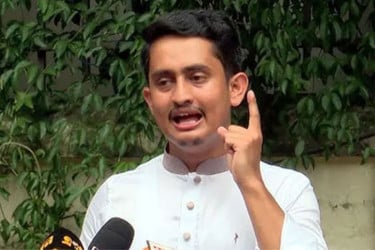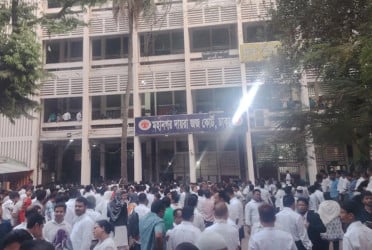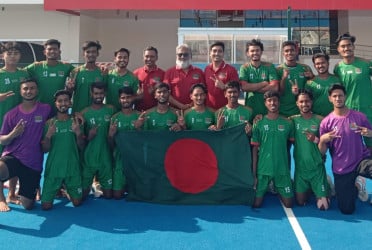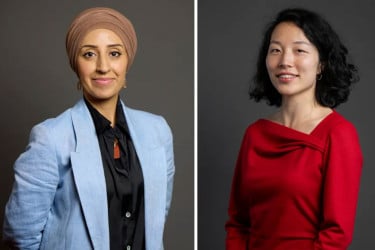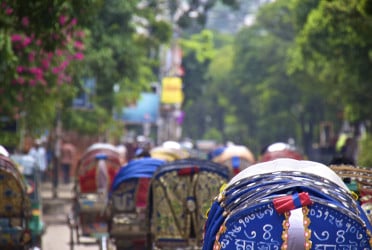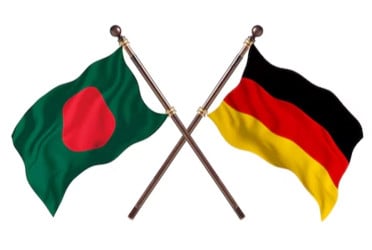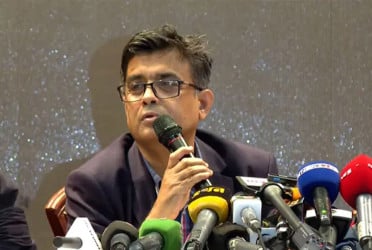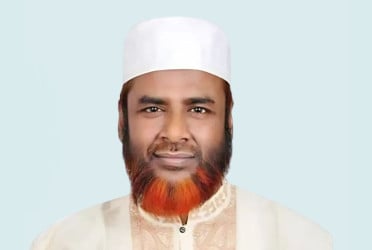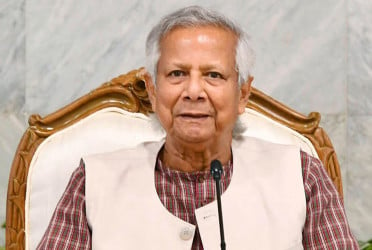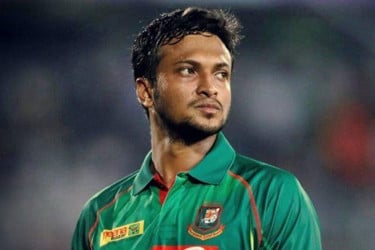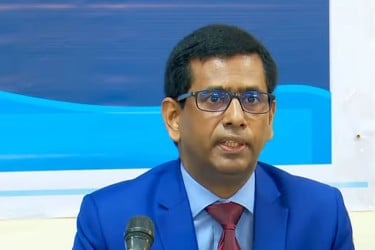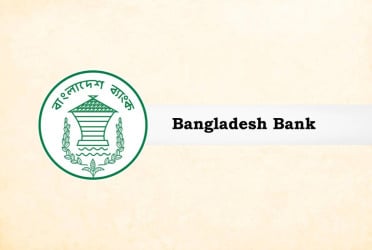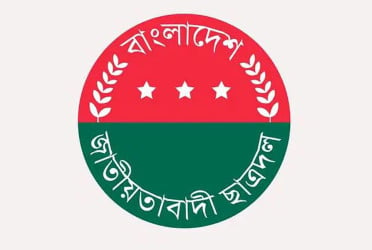Bangladesh Federal Union of Journalists Union (BFUJ) secretary general and Bangladesh Sammilito Peshajibi Parishad member secretary Kader Gani Chowdhury said, "Journalism should be about revealing the whole truth, not the partial. White should be called white and black should be called black. We should rise above all fear and greed and present the truth to the nation. Those who do not have the courage to face this challenge, at least journalism is not for them.”
He said this at a journalist rally organized by the Rangpur Journalists Union at Rangpur Town Hall Saturday morning. Apart from Rangpur, journalists from Dinajpur, Kurigram, Lalmonirhat, Gaibandha, Panchagarh, Syedpur, and Bogura also joined the rally.
Chaired by Rangpur Journalists Union president Salequzzaman Salek and moderated by general secretary Sarkar Mazharul Mannan, the event was also highlighted by speeches from BFUJ acting president Obaidur Rahman Shahin, Dhaka Journalists Union president Md. Shahidul Islam, Dr. Sadiqul Islam Swapan, Irfanul Haque Nahid, Momtaz Shirin Bhorsa, divisional commissioner Shahidul Islam, DIG Aminul Islam, deputy commissioner Rabiul Faisal, police commissioner Majid Ali, police superintendent Abu Saim, journalist Swapan Chowdhury, Rangpur Division coordinator of the Anti-Discrimination Student Movement Imran Ahmed, Jamil Ahmed and Nahid Hasan Khandaker, journalists from Rokeya University Dinajpur's GM Hiri, Kurigram's Tamjid Hasan, Gaibandha's Syed Roknuzzaman, Lalmonirhat's Bakul Roy, Nilphamari's Yasin Muhammad Sipu, Thakurgaon's Al Mahmud Emon, Panchagarh's Mosharraf Hossain, Television Journalists Forum's Ehsanul Haque Sumon, Sharifa Shiuli, Asaduzzaman Afzal, and others.
The rally was inaugurated by Shamsi Ara Zaman Koli, a member of the July Shaheed Smriti Foundation and the mother of journalist Tahir Zaman Priyo, who was martyred in the July-August Revolution of 2024.
Kader Gani Chowdhury said, "For the freedom of the media, we need the fighting spirit of journalists, institutionalization of the media, and democratic governance. But there is a great lack of all three. For various reasons, journalists have now taken journalism as a mere profession, not as a mission or vision. Journalism is not just a profession of collecting information and data and providing descriptions of events; its basis is also verifying information."
He said, "Except for a few, the media houses have no institutionalization. Therefore, they cannot support the neutral position of journalists and in most cases cannot even provide protection. Rather, most media owners are using the media as a shield for politics and business. Many are somehow getting a newspaper published and becoming editors. They get 50 copies of the newspaper and enter the secretariat with it in their arms. Real editors are cornered by the power of these underarm editors. These crooked editors are capitalizing on information terrorism and becoming the owners of huge amounts of money. Bad journalism, yellow journalism and information terrorism are tarnishing the dignity of journalism.”
The journalist leader said, ‘Politicians, bureaucrats and advertisers want to use the media as they wish. Sometimes they even endanger the lives of the media and media workers. In the last 15 years, more than 60 journalists have been killed due to these reasons. Therefore, the institutionalization of the media is very necessary. The institution must courageously maintain the dignity of journalism by standing against the anger and cunning of politicians and their corruption and occupation. Does that institutionalization really exist now?’
The BFUJ secretary general said, "Objectivity means not exaggerating or minimizing any event or matter. Whatever the personal likes and dislikes of the reporter, there will be no personal comment in the report. The person or the institution whose irregularities he is reporting must have his/her say. There are inevitably multiple sides to the event and matter. You have to talk to everyone and report it. It is not journalism to pay heed to one side and criticize the other. Remember, journalists have to be impartial. Impartiality means that the journalist is not on any side and has presented all sides in a balanced manner. Fairness means that the claims of both sides are presented as fairly as possible in the report. Information gathering, the structure of the report, and the reporter's own narration must all be done independently and away from the position of those involved in the incident. A journalist has to remain impartial. If you don't do this, you are not a 'journalist,' rather you’re a 'dangerous thing'. People will hate you. You will face public anger. Don't you see that after the July-August revolution, many corrupt journalists had to flee? This is a shame for the media.”
Bd-pratidin English/Lutful Hoque

